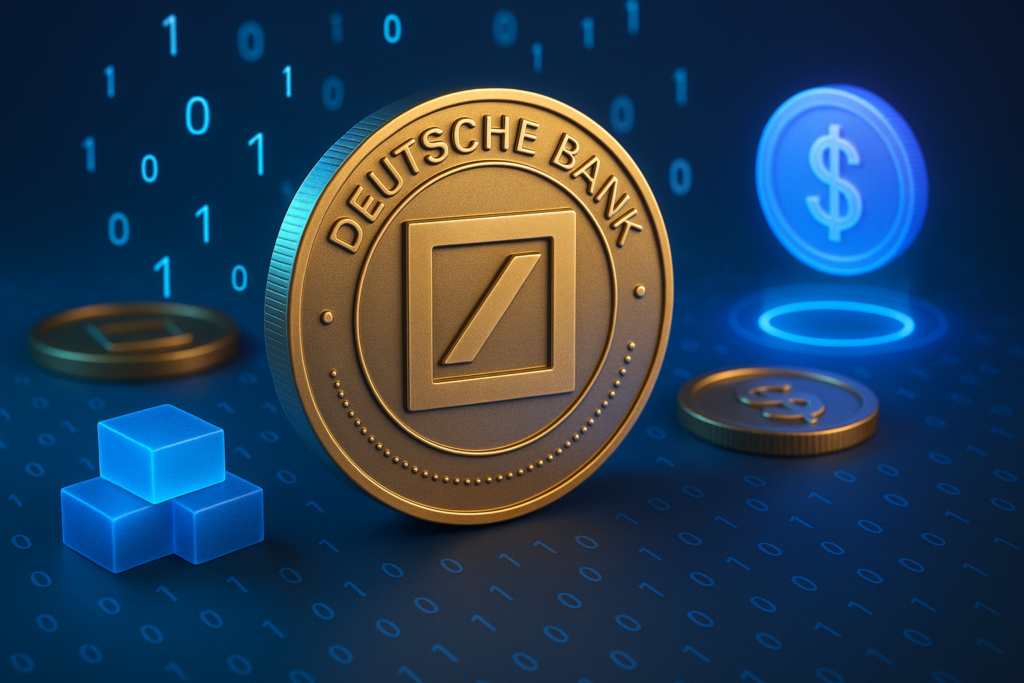Deutsche Bank’s Strategic Shift Towards Digital Assets
Deutsche Bank is actively exploring the issuance of a stablecoin or joining an industry-wide initiative as part of its broader digital assets strategy. This move signals the German banking giant’s intent to remain competitive in an evolving financial landscape increasingly influenced by blockchain and tokenized payments.
The bank is weighing the development of a tokenized deposit system to improve the efficiency of cross-border and domestic payments. This system would digitize traditional bank deposits using blockchain technology, enabling faster and more secure settlement mechanisms.
Rise of Tokenized Finance in the Banking Sector
The bank’s initiative aligns with a growing trend among traditional financial institutions to adopt blockchain-based infrastructure. In the U.S., major banks like JPMorgan Chase, Bank of America, Citigroup, and Wells Fargo are reportedly considering a joint stablecoin project. This is a direct response to the increasing popularity of stablecoins and the pressure to modernize financial services to match the speed and transparency offered by decentralized finance platforms.
Stablecoin Adoption Accelerates with Regulatory Support
Regulatory clarity in the European Union and proposed legislation in the United States are contributing to faster adoption of stablecoins by financial institutions. According to Deutsche Bank, stablecoins are now on the verge of mainstream use as lawmakers offer a more defined regulatory framework under the current U.S. administration.
The bank has identified several strategic options, such as issuing its own stablecoin, joining a consortium, or acting as a reserve manager for stablecoin assets. These options reflect the flexibility banks now have in adapting to digital finance innovations without compromising regulatory compliance.
Strategic Investments and Collaborations
In addition to exploring its own stablecoin and tokenized deposits, Deutsche Bank has invested in Partior, a cross-border payment network that utilizes blockchain to streamline international transactions. The bank has also joined Project Agorá, a central bank-backed initiative focused on developing wholesale tokenized payment systems, which further highlights its commitment to financial innovation.
Conclusion
Deutsche Bank’s exploration of stablecoins and tokenized deposits is a clear indicator of the banking sector’s shift towards blockchain-enabled financial infrastructure. With increasing regulatory support and industry-wide collaboration, the traditional banking model is evolving to incorporate digital assets, improving efficiency, transparency, and global reach in payment systems.
